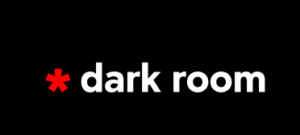– Greetings,
During yesterday’s cabinet meeting, there was an extended discussion about economic policy (given the upcoming budget) with much said about the admittedly positive performance, surplus revenues, etc. Mitsotakis endorsed all this but also made a point to highlight what’s happening in the market—intended for everyone in the cabinet to hear. The good economic numbers have not reached the public because, as the saying goes, “inflation eats away at your money.”
Indeed, the accumulated inflation since the Ukraine war, combined with the overall struggles of the country post-memorandums, has left little breathing room for the average citizen. Taxes—both direct and indirect—have been reduced (for individuals, businesses, ENFIA, contributions, etc.), but inflation and the slow adaptation of businesses to wage increases have suffocated daily life. What can you tell a young person who works but spends half their salary on rent?
That’s why K.M. himself emphasized in the cabinet meeting the need to continue efforts to make the economy perform better, reduce taxes further, and, of course, increase wages—although the latter isn’t something a government can directly enforce in the private sector.
“We’ve achieved results and managed the economy well over the past five years, but it’s not enough. I’d like us to change our messaging—when we speak to the public, we must first address their daily struggles and then talk about our achievements,” Mitsotakis reportedly said—or something to that effect.
And What About the Banks’ Profits?
In the broader effort to ease the burden of inflation on people, there’s been a longstanding idea of imposing a one-time tax on bank profits (similar to the refineries). While it’s unclear if they’ll escape such a measure this year, I wouldn’t bet on it for 2025 regarding profits from 2024. We might see a “tailored suit” worth around 200 million euros each for at least the systemic banks. We shall see…
And Elections in 2027…
K.M., during the cabinet meeting, also made it clear to his ministers that he plans to lead ND’s campaign to win the 2027 elections, using economic policy as his main weapon. He outlined the economic strategy up to the end of the term, emphasizing the funds that will flow into the market from the Recovery Fund and the prospect of further direct tax cuts.
It’s evident—at least that’s how the ministers interpreted it—that the political terms of today will not be the same come spring 2027.
Polls
As I mentioned yesterday, a poll commissioned by M.M. last week places ND at 31% (with adjustments), PASOK at 19%, and SYRIZA (pre-congress) at 5%-6%. Kasselakis is around 4%-5%, essentially split into two factions. Velopoulos remains steady, possibly losing a bit to Latinopoulou, but statistically insignificant. The New Left is nowhere to be seen, so perhaps it’s time they start speaking up because, in the end, they might have no platform left. Although passions and rivalries don’t fade easily on the Left.
The Meeting with the Indians
The government confirmed yesterday the news I previously reported: on December 2, K.M. will be in London to meet, among others, with Sir Keir Starmer. I’ve also learned that his schedule now includes a meeting with Indian financial stakeholders in the City, who naturally have connections back to their homeland. The final list of participants is being finalized these days by the Prime Minister’s Economic Office Director, Alexis Patelis.
Nikos, Steady as Always!
The highlight of yesterday’s political news, saved for last, concerns SYRIZA. Yesterday afternoon, a video surfaced on SYRIZA’s official social media pages showing Sokratis Famellos, the new occupant of the “President’s Office” in Koumoundourou, standing at the threshold—with none other than… little Nikolas Pappas popping up right behind him. “Of course!” as the late comedian Hatzichristos used to say, “Can Lent miss March?” Nikolas was with everyone and still is. They tell me that on Sunday, he supported Farantouri, which is why that particular “talent” managed to get 5%. As for late Sunday afternoon, I don’t know exactly what he did, but one thing’s for sure—he’s still… in the mix. Steady as always because he knows how to keep moving!
The Tycoon and the Bribery Allegations
On a separate note, since we mentioned Indians earlier, I remembered that during Modi’s visit to Athens in August 2023, the figure who attracted significant attention was Gautam Adani’s team—and not without reason. The wealth of the head of the Adani Group is estimated at around $85 billion, placing him among the 20 richest people in the world. Back then, Adani had shown interest in investing in Greece, especially in ports and other infrastructure, though nothing ultimately came of it. I remembered the Indian tycoon because I recently read that the Americans have filed charges against him, accusing him of bribery involving $250 million in connection with solar energy plant contracts.
ABAX and EKTER Head to Court
Moving on to local business-legal matters, the rift between EKTER and ABAX over a €400 million contract for the construction of three Stavros Niarchos Foundation hospitals—donated to the Greek state—is deepening. According to company sources yesterday, EKTER plans to file a lawsuit against ABAX for breach of an agreement that assigned EKTER a €120 million share of the construction project.
The two companies had exchanged a series of legal notices last August over the disputed contract, which fractured their decades-long collaboration on public and private projects. While the agreement was not formalized in a private contract, EKTER claims ABAX reneged on an initial arrangement, under which EKTER was to take on part of the work, including at the Stavros Niarchos project. EKTER has had prior collaborations with the Niarchos Foundation, and the company asserts its role in securing the project was critical.
EKTER emphasizes that the verbal agreement is substantiated by six months of correspondence regarding the hospitals, their involvement in preliminary works, and the employment of 12 of their mechanical engineers on the project. ABAX, on the other hand, argues that no agreement was ever finalized and that discussions about a partnership were also held with other companies in the sector. However, EKTER insists that ABAX’s withdrawal from the agreement contradicts the established collaboration and has caused significant damage.
ABAX has countered by clarifying that the agreement did not materialize due to EKTER’s refusal to accept standard contractual terms typical for subcontractor agreements under such major projects.
Big Projects in Logistics
TAIPED (Hellenic Republic Asset Development Fund) is running two major real estate tenders focused on logistics at a time when efforts are underway to merge TAIPED with HFSF and the Superfund. This merger, expected to be completed by year’s end, will form a new management structure for a national investment fund (Growthfund) tasked with financing development activities.
As for the two projects, they involve the development of the former Gonou military camp in western Thessaloniki and the Logistics Park in the municipality of Fyli. These projects are expected to attract private investment exceeding €800 million.
The 672-acre Thessaloniki property will be leased for a minimum of 30 years, with a deadline for expressions of interest set for November 15. The goal is to complete the first phase of the tender process by the end of 2024, followed by competitive dialogue and submission of binding offers.
For the Business Park in Fyli, spanning 412 acres, there’s already significant interest from five major players: Aegean Oil (Melissanidis), Goldair (Kallinikos), Newsphone-Levante (G. Theodosis – S. Apergis), Orpheus Veinoglou (Streem Global/HIG), and FINCOP (Kopelouzos). Reports suggest that competitive dialogue—key to drafting tender documents—has already begun.
The Business Park plan includes relocating approximately 400 transport companies from Eleonas and creating extensive storage facilities and infrastructure to establish a new logistics hub for Attica.
The Three Aces of the Morgan Stanley – HELEX Roadshow in London
Three events stand out in the roadshow organized by Morgan Stanley and HELEX on December 2 and 3 in London, promising to attract all the attention and make headlines. The first is a discussion involving Kyriakos Mitsotakis at the conference’s opening. The second, towards the end of the first day, features a panel of CEOs from Greek banks. P. Mylonas, V. Psaltis, F. Karavias, and C. Megalou will aim to outline the revised operational plans of their banks, strategies for compensating for revenue loss due to upcoming interest rate cuts, and their intentions for financing the Greek economy. The third notable event of the first day is a discussion featuring the Prime Minister’s economic advisor, Alex Patelis. This discussion will be introduced by Mike Wilson, Morgan Stanley’s Chief U.S. Equity Strategist and Chief Investment Officer, and moderated by Ellen Zentner, Morgan Stanley’s CEO and Chief Economic Strategist, who also leads Thematic and Macroeconomic Investments in Wealth Management.
Alpha Bank’s Strong Ally
UniCredit CEO Andrea Orcel has a reputation in the European market as a skilled dealmaker. He confirmed this yesterday with his surprising €10.1 billion offer to acquire Italy’s Banco BPM. Simultaneously, Orcel has left open the possibility of acquiring Commerzbank after resistance from the German government, as he aims to position UniCredit as the largest banking organization in the EU. In this strategy, Alpha Bank has a role, thanks to UniCredit’s recent stake in it. Alpha Bank CEO V. Psaltis often highlights that the alliance with UniCredit provides the bank’s clients with access to European markets while a specific plan is being implemented to maximize synergies from the UniCredit-Alpha Bank partnership.
High Flight for GEK TERNA’s Stock
Not since the early 2000s has GEK TERNA’s stock approached levels close to €18.50. Yesterday, it reached €18.46, with a year-to-date return of 38.2%. Note that just two years ago, the stock lingered around €9 for a while. Its performance is already remarkable, and with the pending completion of the TERNA Energy sale to Masdar, analysts are setting even higher targets. Recently, Eurobank Equities initiated coverage of Greece’s largest infrastructure group with a “buy” recommendation and a target price of €23.40, while a month ago, AXIA set the bar at €27.40.
The Buyer of PPA (Who Only God Knows What They’re Doing)
We’ve said it before, but it bears repeating: it’s not enough for PPA to have increased revenues, managed expenses prudently, or maintained profitability and cash liquidity. The stock market reveals that PPA’s stock, which yesterday again traded at new historic highs of €30.85, has an underlying plan and a methodical buyer who operates through various investment accounts and purchases from New York. The purpose of these systematic purchases is unknown, nor is what this investor is pursuing. After all, 67% of PPA’s share capital is owned by Cosco (China) and a small 7.14% by TAIPED. The free float of about 25% in the market wouldn’t lead anywhere, even if fully acquired by someone. So…
The “Revenge” of Ellaktor and the Index’s Representativeness
When the Greek stock market undergoes the quarterly rebalancing of MSCI indices, trading volumes are usually double the daily average. Yesterday, however, turnover barely reached €208 million, a sign of both investor inertia and the insignificance of the changes. Throughout the day, €75 million worth of stocks changed hands, with rebalancing contributing €10 million in the closing auction.
Another notable point about our market is that three non-banking stocks—TITAN, PPA, and GEK TERNA—are trading at historic highs. However, the General Index struggles to establish itself above the psychological threshold of 1,400 points, raising questions about its representativeness. Recently, the index’s weak upward movement hasn’t been driven by banks but by non-banking stocks. Among the systemic banks, only Eurobank has posted a modest positive result over the past nine sessions, while the others have declined.
Yesterday’s session highlights included Ellaktor’s “revenge,” as it exited the MSCI Small Cap Index but still closed up +2.94% at €1.68, and Aegean Airlines’ strong +1.88% rise. ELVALHALCOR and Cenergy also performed well (+2.5%), though parent company VIOHALCO showed little movement (+0.39%). The General Index rose above 1,406 points (+0.33%) but lacked significant momentum.
New Leadership at ECG
In the coming days, the government is expected to appoint new leadership for ECG, which will introduce a plan that includes activating Factoring services for exporters and new financial tools to promote the extroversion of small and medium-sized enterprises. The ECG (Export Credit Greece) has replaced the old Export Credit Insurance Organization.
Chinese Invasion in Greek “White Goods”
This Black Friday is certainly different. A structural shift is underway in the white goods market, with retailers’ offers reflecting a new strategy. Chinese giants are making a strong entry into the Greek market. Companies like TCL, HiSense, and MIDEA (mainly in air conditioners) are setting up offices in Greece (if they hadn’t already) and expanding independently. Armed with very low prices, they are targeting consumers with lower incomes, forcing major players like LG, Samsung, and Electrolux to focus on premium products aimed at higher-income consumers, sweetening the deal with interest-free installment plans. This phenomenon is expected to expand significantly by 2025, making the “stock clearance” of the now-monthly Black Friday in Greece particularly interesting.
Energy Crisis in Germany
Here in Southern Europe, we have every reason, argument, and evidence to believe that a true European energy market doesn’t exist. Instead, there’s a supposedly centralized system with a peculiar algorithm that fails to send adequate energy to Eastern Europe or from Eastern to Central Europe, creating massive price distortions. However, Germany is also struggling with energy prices. Yesterday, natural gas prices reached €50 per megawatt-hour, and electricity prices for one-year contracts climbed back above €100 per megawatt-hour. In Germany, with its harsh winters and extensive industrial and manufacturing activity, these are crushing prices, offering tangible proof of Europe’s unstable energy landscape. Across the Atlantic, production companies don’t even concern themselves with electricity costs. In Europe, however, governments are collapsing over electricity tariffs.
No Brakes for the American Stock Markets
Frankly, we should stop talking and writing about what’s happening on Wall Street right now—so as not to jinx it! The S&P 500 index, covering 500 stocks, yesterday remained above 6,000 points, which means that since the fateful day of November 5, during the U.S. elections, the S&P 500 has added $2.5 trillion to its market capitalization. Since the beginning of the year, roughly half a trillion dollars in “fresh money” has poured into American stocks—double the combined inflows of new funds in 2022 and 2023.
Non-U.S. funds now account for 60% of Wall Street’s activity. Inflows into equity mutual funds have surpassed the previous $400 billion record set in 2021. What we can say with certainty is that Wall Street today is anything but cheap. The price-to-earnings (P/E) ratio has risen to 22.1 (compared to the historical average of 16.5), the dividend yield is at 1.2%, the price-to-book ratio is 5.2 times, and enterprise value to operating income stands at 14.8 times.





